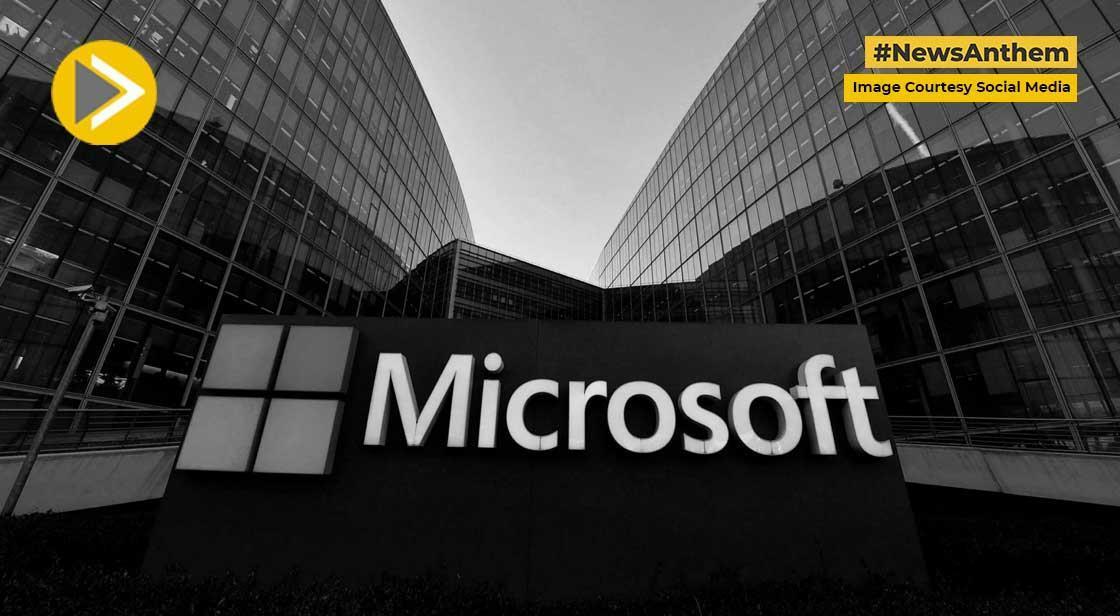Microsoft Unveils Majorana 1 Chip, Claiming Quantum Computers Are 'Years, Not Decades' Away

News Synopsis
Microsoft has made a major leap forward in the race to develop quantum computers by unveiling its new Majorana 1 chip. The company asserts that this development proves quantum computing is just “years, not decades” away.
This statement positions Microsoft alongside industry giants like Google and IBM, who have also forecasted that practical quantum computing is closer than previously believed.
The announcement underscores the increasing confidence among tech leaders that quantum computing will revolutionize fields such as medicine, chemistry, artificial intelligence, and cybersecurity much sooner than expected.
However, this technology also raises security concerns, as quantum computers could potentially break current encryption methods.
Why Quantum Computing Matters
Quantum computers promise to outperform classical computers by executing complex calculations in mere seconds—tasks that would take conventional systems millions of years. This breakthrough could lead to major discoveries in various scientific fields, including:
-
Drug discovery and healthcare: Simulating molecules at an atomic level to develop new treatments and drugs.
-
Material science: Unlocking new materials for industries like semiconductors and aerospace.
-
Financial modeling: Optimizing investment strategies and risk analysis.
-
Artificial intelligence: Enhancing machine learning models beyond current limitations.
However, quantum computing also comes with risks, particularly in cybersecurity. Many encryption techniques today rely on the assumption that it would take classical computers an impractical amount of time to crack codes. Quantum computers, however, could decrypt sensitive information in seconds, making current security systems vulnerable.
Microsoft’s Unique Approach with Majorana 1
One of the biggest challenges in quantum computing is managing qubits, the fundamental units of quantum information. Unlike classical bits, qubits are incredibly fast but highly unstable, making them prone to errors and quantum decoherence.
Microsoft’s new Majorana 1 chip seeks to solve this problem by leveraging a unique subatomic particle called the Majorana fermion. Originally theorized in the 1930s, the Majorana fermion is more stable and less prone to errors compared to traditional qubits.
According to a scientific paper set to be published in Nature, Microsoft’s approach significantly reduces error rates. Unlike competitors Google and IBM, which focus on increasing the number of qubits, Microsoft aims to make each qubit more efficient, meaning fewer are needed to achieve computational breakthroughs.
Key Features of Majorana 1:
-
Built using indium arsenide and aluminum.
-
Uses a superconducting nanowire to observe Majorana fermions.
-
Compatible with standard computing equipment, making integration easier.
-
Fabricated at Microsoft’s labs in Washington state and Denmark.
Tech Industry’s Debate Over Quantum Computing Timelines
The timeline for functional quantum computers remains a subject of debate among industry leaders. Microsoft’s claim that quantum computing is “years, not decades” away is a bold assertion amid mixed predictions:
-
Nvidia CEO Jensen Huang recently stated that quantum computers are two decades away from surpassing traditional chips.
-
Google, which unveiled its own quantum chip in 2023, believes commercial quantum applications are just five years away.
-
IBM projects that large-scale quantum computers will be operational by 2033.
Microsoft, however, has not provided a concrete timeline for when the Majorana 1 chip will be scaled up to build fully functional quantum computers.
Microsoft’s High-Risk, High-Reward Strategy
Jason Zander, Executive Vice President at Microsoft, described the project as a “high-risk, high-reward” endeavor. He emphasized the scientific challenges involved in creating a reliable quantum computing platform.
“The hardest part has been solving the physics. There is no textbook for this, and we had to invent it,” Zander said in an interview with Reuters. “We literally have invented the ability to go create this thing, atom by atom, layer by layer.”
This innovation places Microsoft at the forefront of quantum computing research, alongside Google, IBM, and other leading institutions.
Expert Reactions to Microsoft’s Breakthrough
Harvard Physicist Applauds Microsoft’s Progress
Philip Kim, a physics professor at Harvard University, called Microsoft’s work an “exciting development”, recognizing its potential to accelerate quantum computing research.
“Majorana fermions have been a hot topic among physicists for decades, and what Microsoft has achieved is impressive,” Kim said.
He further noted that Microsoft’s use of a hybrid model—combining traditional semiconductors with exotic superconductors—is a promising pathway to scaling quantum chips into more powerful and commercially viable models.
“Although there’s no demonstration (of this scaling up) yet, what they are doing is really successful,” Kim added.
Conclusion: A Quantum Leap Towards the Future
Microsoft’s unveiling of the Majorana 1 chip marks a significant step toward realizing practical quantum computing. By focusing on error-resistant qubits, Microsoft is challenging conventional quantum computing approaches and potentially accelerating progress in the field.
While some experts remain skeptical about the short-term feasibility of quantum breakthroughs, Microsoft’s innovative approach suggests that functional quantum computers could arrive much sooner than previously expected. If successful, this technology could redefine industries, boost AI capabilities, and revolutionize cybersecurity.
The future of computing is evolving rapidly, and with Microsoft, Google, IBM, and Nvidia all investing heavily in quantum research, the next decade may witness the dawn of a new technological era.
You May Like









